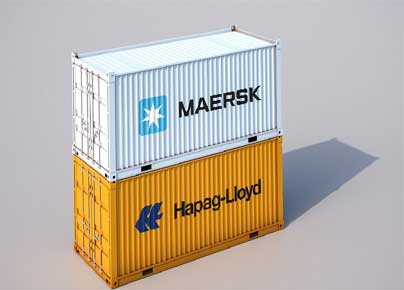Maersk and Hapag-Lloyd Play It Safe
2024-10-11

Gemini Cooperation, the entity formed by Maersk and Hapag-Lloyd to unify their operations on East-West Routes in early 2025, has decided to launch its services via the Cape of Good Hope.
"After thorough consideration and given the continued safety concerns in the Red Sea, Hapag-Lloyd AG (Hapag-Lloyd) and Maersk A/S (Maersk), an entity under A.P. Moller – Maersk, confirm that they expect to phase in their Cape of Good Hope network for the commencement of the Gemini Cooperation on 1 February 2025," Maersk announced in Europe on October 9th.
"As the situation remains highly dynamic, Hapag-Lloyd and Maersk will return to the Red Sea when it is safe to do so."
For its part, Hapag-Lloyd said: "On 10 September, we announced the two network options considering the ongoing disruptions in the Red Sea. As we get closer to the official start of our cooperation with Maersk, we have jointly decided to phase in the Cape of Good Hope Network in February 2025. The safety and well-being of our seafarers, our vessels, and the cargo of our customers are key, and we expect to return to the Red Sea once it is safe again."
For Maersk, the Gemini Cooperation succeeded in its 2M partnership with MSC, while Hapag-Lloyd withdrew from the Alliance to join Maersk.
Maersk says the Gemini Cooperation aims to deliver industry-leading schedule reliability above 90% once fully phased in, "ensuring efficient and flexible services across the East-West trades." The Cape of Good Hope network will include 29 mainline services supported by 28 intraregional shuttle services. A fleet of around 340 vessels will operate with a total capacity of 3.7 million TEU.
The MSC does not favour Gemini's 'Network of the Future' hub-and-spoke approach. It goes it alone (for the most part). Its chief executive, Soren Toft, believes direct port calls best serve changing supply chain needs.
"Supply chains are no longer centered around just a few countries, and no longer rely on one or two major markets, but are becoming more dispersed and we believe that requires a broader port coverage in the network," he told the World Ports Conference in Hamburg last week.
"We made the decision to walk alone because we have the fleet, but also because it gives us the agility to respond to the challenges in the world."









